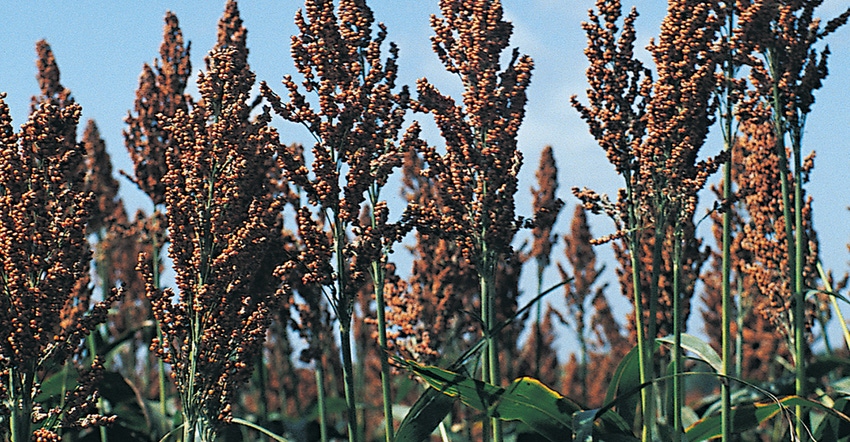
It has been 12 years since the first assessments from the sorghum checkoff were collected. In the years since then, the money collected has been used to fund research, develop new markets and support education for growers.
But this year, there have been a flurry of breakthrough announcements that illustrate the success of initiating that program to help fund the research that would lead to agronomic improvements and new markets.
In June, three different companies announced they expect to be able to offer a limited amount of seed to help growers raise hybrids that are tolerant to herbicides. Not just one herbicide, but three different technologies, giving growers a choice of ALS, ACCase or IMI herbicides. At the same time, S&W Seed Co. announced the beginning of research into new a dhurrin-free trait developed at Purdue University.
Sorghum, a tropical grain that is among the top five cereal crops in the world, originated in Africa, where it is a major human food source. Kansas is the top-producing state for sorghum in the U.S.
For almost two decades, producers and industry leaders have seen the lack of herbicide-tolerant varieties as an obstacle to growing the number of acres of sorghum and making it more competitive. Grassy weeds, especially Johnson grass, have robbed yields year after year. Some producers even complained they wouldn’t plant sorghum because they didn’t want to grow Johnson grass.
Preemergent and residual herbicides seldom offered enough protection to get the crop to maturity before enough grasses emerged to rob yields.
Broadleaf weeds, especially resistant ones, are also a problem across Kansas, where producers have battled resistant pigweed and marestail.
In 2021, if all goes as expected in this summer’s trials and regulatory approvals come through as expected, producers will be able to analyze their more serious problem and choose a hybrid that offers tolerance to the herbicides most likely to help them overcome it.
This is indeed good news for producers. It is also a validation of the checkoff program, which helped sorghum get the attention of private and public research by providing the support needed for that research to move forward.
The checkoff also helped fund the research that resulted in the quick development of hybrid varieties that offer resistance to the sugarcane aphids, which emerged as a major threat to the crop in 2013. By 2018 and 2019, multiple hybrids resistant to the damaging aphids were made available.
There may be a lot of things that sorghum producers to be concerned about in an era of weather challenges and public health threats. But there’s one thing the success of the checkoff illustrates: when everybody makes a commitment to helping be part of the answer to a common problem, answers can be found.
Congrats to the sorghum checkoff. Here’s to more breakthroughs in the future, and the continued growth of a grain that has the potential to feed humans and animals, produce feedstock for producing clean biofuels and biomass to remediate depleted soils.
Good decision, sorghum growers.
About the Author(s)
You May Also Like






